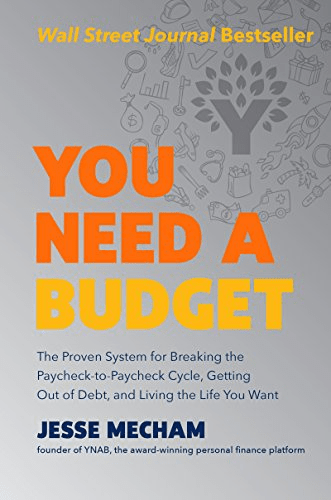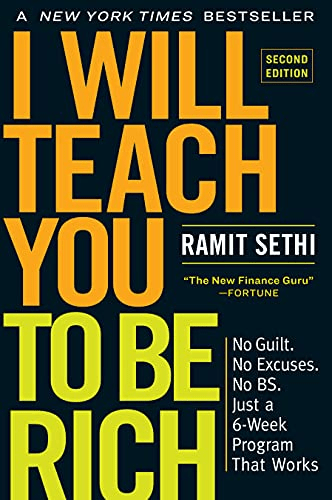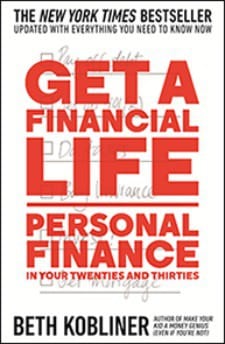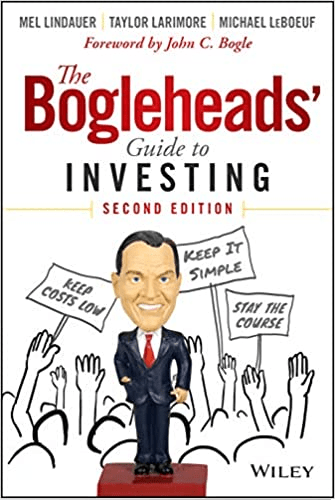This post may contain affiliate links and Corporette® may earn commissions for purchases made through links in this post. As an Amazon Associate, I earn from qualifying purchases.

Here’s an odd post that I don’t think we’ve ever done: financial advice for women lawyers starting in BigLaw or other big corporate gigs with lots of money. Starting salaries for lawyers can be as high as $180,000 these days, so it can definitely be a great first salary! It’s a good idea to be prepared for the ways that working in BigLaw will affect your finances.
Here’s some of our top financial advice for women lawyers:
Our Top Financial Advice for Women Lawyers: Be Realistic About Your Plans
Have a realistic idea about how long you’re going to be making that kind of money. I would say the default assumption should be that you will only be making a lot of money for a short period of time, probably five years at the most. (Almost 46% of associates leave their firm within three years, and 81% do so in the first five years.)
Don’t Waste Salary on a Fancy Apartment or House
Know that your apartment is going to be one of the most significant money decisions you make. Ignore the “pay 20% or 30% of your salary” rule, except as an upper limit — in practicality, rent the least expensive apartment that you can feel safe and comfortable in. If sharing a place doesn’t bug you, you may even want to consider getting roommates, because odds are you won’t be home a lot anyway.
Why Your 401K is a Top Priority
Look into your company 401K plan immediately, and get signed up. If you can start contributing this year, contribute the maximum amount or percentage that you can. This is particularly important because 401K plans a) may have an employer match (but probably won’t in BigLaw), b) 401K plans have yearly limits, so you can only contribute so much in any given year — if you delay, then five years from now you’ll wish you had started earlier. Look into the income limits for a Roth IRA as they apply to you, particularly if you happen to have, say, a spouse still in grad school with low/no income.
Attack Your Debt
Pay off credit card debt ASAP. If you have ANY credit debt from your time in school or even just your summer travels, make that a serious priority. Can you pay them off by the end of the year if you eat ramen and live like a student? Get them paid off, in full, as soon as possible. Like, ASAP asap.
Make a plan for your student loans. I know the impulse is to hide your head in the sand, but take a serious look at your loans. I’ve always been a fan of the “debt snowball” theory, where you set up an automatic payment for the minimums on all of your loans BUT FOR the loan with the highest percentage, and instead you start to pay extra toward the principal on that loan. (If there are two loans with the same percentage, I would suggest picking the one with the smaller amount owed.)
I’ve also been a fan of just rounding up — if your minimum payment is $221, what can you do above that — $225? $300? $500? You don’t want to be dealing with overdrafts, so make it a realistic goal that you can put it on automatic — you can always make extra “spur of the moment” payments towards principal. SUPER fun, right? Just how you wanted to use your bonus money! Before you know it, you’ll get that rush of excitement when it’s time to pay off the Target Loan in full. Celebrate as you will — then pick your next target and put everything you WERE paying for the Target Loan towards your next target. Knock ’em down, one by one. If you’ve got big student loan debt, check out this older post, and if you’re pondering whether to save or to pay down debt, check out this other older post. Our money roadmap might also be helpful here.
Psst: here are some of our favorite financial books for newbies:
These are some of our latest favorite financial books for beginners:





Avoid Golden Handcuffs
Have fun, but watch out for golden handcuffs. You are likely to be making more money in the next five years than you will at any other time in your life, and, barring student loans, much of it will hopefully be disposable income, particularly before you have kids. Spend it wisely, particularly for day-to-day stuff. Do you really need to take that cab to work every day, or to get the fancy $12 salad every day?
You may want to spend some time figuring out budgets for these things — for example, I have $30 per week to spend on lunch and coffee, barring special occasions or networking lunches. I have $200 a month to spend on cabs. And when the money’s gone for that month, it’s gone. (Mint can track this sort of thing, but some people also just prefer an “envelope method” using cash — particularly if you have a little “work wallet” to keep track of cash and various “buy 9 salads get the 10th free” cards for lunch spots near your office. I can see it making sense to get $30, put it in your work lunch wallet, and only pay in cash.)
Automate Your Savings
Automate savings wherever you can. I was blessed to graduate without student loan debt (thanks, parents!) and one of the smartest things I did was to move my second BigLaw paycheck over to savings almost as soon as I got it every month, and try to keep my operating expenses entirely contained within my first paycheck. That one decision has afforded me and my family a lot of flexibility, freedom, and comfort for the years since. Here’s my latest post on how to automate savings.
Ladies, what financial advice for women lawyers would you add? For those of you who are OUT of that phase in your life, what do you think you did right — and what do you wish you’d done better?
For those of you still IN that phase of life, would you care to share any budget items with us — what’s your base, what’s your monthly rent or mortgage, how much do you spend on food (like lunches), what big “splurges” are you enjoying, and where have you tried to be frugal?
Picture credit: Shutterstock.
In honor of our original title for our money series, Tales from the Wallet… here’s a wallet!


LAJen
This is all good advice, except that I don’t use cash for anything unless I have to–I prefer accruing miles, but it’s important to ensure you pay off your credit card every single month in full if you’re going to do that.
Also, don’t just put all your extra into a random savings account each month; do your homework and choose a high interest savings or money market account, and as soon as you’ve paid off high interest loans and are contributing to 401K and still have money left over, either get a financial planner to make some wise investments, or if you’re a do-it-yourself person, make some wise investments. This latter part is something I didn’t do, and earning even 1.2% APR in a savings account for years I could have been investing a portion at a higher yield is something I regret (and happened because I grew up in a home with parents with very little financial literacy).
Anonymous
Agreed on all counts. I view every dollar I spend in cash as a dollar where I’m wasting the opportunity to get credit card rewards points. You just have to make sure you only charge less to the card than you have sitting in the bank, and never think of it as a way to borrow money.
ELS
+1. I do not make a biglaw salary, but I use my rewards card to buy literally everything I can (my mortgage and student loans come out of the bank account, everything else on the credit card). We don’t travel a lot, so we just have a cash back card, and the extra money at the end of the year is usually enough to fund Christmas gifts to each other and our immediate families with some extra left over for something fun.
E
Yes I hate the “use cash” advice. Using a credit card will earn you more unless you don’t trust yourself to spend less than you can afford which is a different issue.
Anonymous
Choose a spouse very carefully. (Yes, I consider this financial advice)
Anonymous
This. So so important. My biggest secret to success? Marrying an awesome man who supports and admires my drive, is passionate about saving for retirement, and loves being an equal co-parent.
LAJen
I think many of us who are single are wishing we had such luck. I, personally, find it daunting that I have no such partner, and it makes it very difficult to think about how to structure my future financially without having that second person there who can share in the planning and the saving (and, of course, the joyful and difficult parts of life, too, but that’s not what this discussion is about). And yes, of course I am glad I don’t have a partner who is a financial drain, but not having a partner at all does actually affect very much the financial and professional decisions I feel I can make.
Anon
If you are planning a maternity leave, plan to take it will still in Biglaw. You will net tens of thousands of dollars over taking the same leave after you’ve move into the government or a nonprofit.
Anonymous
Eh, but you’re more likely to quit your job when you return if you’re in Big Law working crazy hours versus 40 hours a week at govt or non-profit. And quitting would erase any mat leave savings many times over. I think it’s kind of a know-yourself thing, but I think it’s a perfectly valid decision to know you can’t juggle an 80 hour/week job and a newborn and to delay parenthood until you are in a less hectic job.
NYC
DITTO. I had my first baby at biglaw and made my full salary for almost a full six months of leave. I had my second baby at govt and was paid for 11 weeks (which was a lot due to having a ton of sick leave). That’s a difference of at least $50,000 when you are talking about a big law salary. I was at a family friendly white shoe firm and went back at an 80% schedule and frankly had a very easy transition. It is possible.
Runner 5
My advice would be to choose just one area to allow yourself lifestyle inflation in. Mine: I live alone. But I don’t go on vacations or drink in bars.
Anonymous
I think rather than framing it as “what should you deprive yourself of” it’s more helpful to think of finances in terms of what you need to save and then what the leftovers (after savings) will allow you to do. I live alone, take vacations and go out to eat and drink pretty regularly, and my salary is much less than the Big Law starting salaries mentioned above. But I have no non-mortgage debt, and after paying my mortgage and fully funding my retirement I have plenty left over for all of the above activities so I don’t consider my lifestyle “inflated.” I guess some would see it that way, although others would probably see it as quite modest, and it’s certainly not inflated beyond what I can afford.
Anonymous
You have no non-mortgage debt, which is a very different situation then a recent law school grad who (must likely) has 6 figures in debt. This advice might make sense in your case, but I don’t think it is very helpful for someone trying to pay off $200k in student loans. There best bet is to make a budget and try to throw as much money as possible at their student loans because they will likely never be in a better place for paying it off.
Also, I would suggest saving more than just a maxed out 401k and a (back-door) IRA. For most of us, that will not be nearly enough to live the lifestyle we want in retirement. (Again, this advice applies to people making over 6 figures, who don’t want to change their situation in retirement)
Anonymous
Well, my salary is about 1/3 of the Big Law first year salary and not everyone in Big Law has $200k of debt. I did have student loan debt (not $200k, but an amount close to my annual salary) that I paid off while still taking some vacations and going out to eat. I think you can live a pretty frugal lifestyle without giving up everything you enjoy. Should you buy a BMW or spend $10k on a vacation while you still have student loan debt? No. But you can take vacations and go to bars while still paying down debt and saving for retirement responsibly.
Runner 5
I’m in the UK, so different student loan situation, but I don’t make anything near BigLaw – so I spend just over half of my take home pay on rent and bills (gas, electric, council tax, internet – no TV, Netflix only occasionally)
Anonymous
Build an emergency fund early, maybe even before making extra payments to your student loans. A lot of associates are asked to leave after 2 or 3 years. Although you often get a few months notice, it will be less scary if you also know that you already have money in the bank.
Anonymous
And to be even more fear-mongery…it’s becoming increasingly common for associates to be asked to leave after failing the bar exam twice. You usually take the bar exam for the first time before you even begin work, so your second (and in some cases final) attempt may be after you’ve been working for <6 months. Two people I know were let go in the first year of employment after failing to pass the bar on the second attempt. You need an emergency fund from day 1.
Kristen Fanarakis
This is all great advice and so important. The only thing I’d add or expand on in terms of watching out for the golden handcuffs is to be careful not to upgrade your lifestyle with every pay raise. I worked on Wall Street for over a decade and kept my lifestyle relatively low key which enabled me to save enough to ultimately launch and fund my own business http://www.senzatempofashion.com.
If I hadn’t taken the subway, made my own coffee and kept the same apartment rather than trading up to a fancier one with every pay raise I wouldn’t have had seed money.
Gabby
Living way below your means is such great advice. I’ve been a lawyer for 10 years, and my husband and I still live in my husband’s small house with just one main bathroom and window AC units. It’s totally fine! We avoid high property taxes and enjoy eating out and taking nice vacations. We don’t fight over money, and we like to fantasize about our early retirement. It’s great! Whenever I have a bad day at work, it is very comforting to know that I don’t have to work for another 20 years.
It is amazing how much a home ends up costing over a lifetime. People will tell you that with the mortgage deduction, it’s smart to buy a nice house. It will appreciate in value over the years, blah, blah. All of those old assumptions are no longer true as the past mortgage crisis demonstrated. In the end, you really only save about 1/3 of that interest via deductions anyway. The mortgage interest deduction is not a credit. So, 2/3 of the money spent on interest is literally thrown away. Think realistically, too, if you are possibly going to move in the next five years, which is probably the case for a young associate, you will probably lose money by owning a property. Plus, you can save on high property taxes in a high tax state by not buying an expensive house. Then, there is the cost of furnishing, cooling, heating, and maintaining the house, which all increase as the size goes up. It just ends up costing so much more than you ever planned.
You don’t have to buy lots of expensive stuff to show off. People will know you are a lawyer and think you are still rich anyway.
VB
Totally agree. People spend money on stupid things. I am financially secure and now a law professor. I still brew my coffee at home and bring in my own lunch most days rather than buying. My students, who all complain about no money, buy coffees here at the university at $4.50 a pop and all their meals here (with a single meal costing anywhere from$12-20). They must spend hundreds of dollars more than me a week, and then complain that they do not want to spend money on their books for school and complain about all their debt. They’d have several thousand dollars less debt if they lived like me. When I was making awesome money at BigLaw, I shared a super tiny apartment with my now-husband. People would laugh at us for living below our means, but it was pretty awesome when I paid off $130,000 in student loans in less than 3 years. We still lived below our means after that to the extent that we were able to pay cash for our house when we finally left NYC.
shortperson
after maxing out your 401K, pay off your loans. period. in my first two years in biglaw i put all my bonuses into my loans and paid $4k a month on them immediately after receiving my paycheck. the debt went away quickly. i did not think of myself as having a high-paying job until the loan payments went away.
NYC
Also agree. My husband paid off $100K in his private loan debts in less than 3 years at a big firm. We still went on vacations and got married and went out to eat. He was very focused on it though.
VB
Yes. This. As I mentioned above, I paid off $130,000 in under 3 years by doing this. I was very focused. It did not mean that we never ate out but we were very careful on what we spent money on. The debt felt like a millstone around my neck; I considered myself poor until it was removed. So we did not pay on things that add up quickly like cable TV subscriptions, especially when we were both at work all the time and never home. (We did finally succumb after 9/11 when free to air TV reception was affected by the loss of the big TV antenna on top of the WTC.) I did not keep upgrading my cell phone, we stayed in the tiny apartment, which also happened to be rent stabilized – score. We did go on vacation (overseas vacations, no less) but always looked for deals. And all of that travel for work helped because we always did what we could to maximize (and use) frequent flyer miles, hotel points, etc. We had an awesome trip to Turkey, for example, that was basically free due to FFMs and hotel points. We did have some nice meals out, of course, but we tempered them with lots of low cost stuff. It is not exactly difficult to live a low-cost lifestyle in NYC if you want to. You can walk places for free (and stay fit in the process), do free stuff like bike riding or rollerblading on a nice day, etc. And of course there are the free dinners when you work late.
Dr Jenn MD
funny this should come up. I am a surgeon but there are similar issues for new attending doctors ( ie finished med school and residency and starting to work at her first job).
I recently received a question on facebook about this topic. Here was my long response. It may be helpful to some.
Congrats on starting new job! I am glad you have taken the time to learn about personal finance since there are many along the way who will “help” by separating you from your money. There are 5 keys to securing your financial future.
1. Don’t upgrade your lifestyle (yet). If you are making more than you have before, the temptation is to not penny pinch since now you can afford it. It is called “lifestyle inflation” and it is very difficult to recover from ?.
2. Insurance. Make sure you are adequately covered. This includes health, disability, life and malpractice. You didn’t say if you were a independent contractor but I am assuming since you mentioned the SEP IRA. Cover yourself and your family for health insurance from the marketplace if not offered by your employer. Life insurance is insurance, not an investment. Get term life insurance. Do not get whole life insurance. Disability insurance is a must have. Currently your greatest revenue generator is you! If you become disabled and can’t work, you will lose your financial security is you are not covered. I also did a livestream on disability insurance covering what you should look for in a policy.
3. Create a plan for retirement. Looks like you started working on this one already. If you are an independent contractor, you can set up a SEP IRA which is a self employed individual retirement account. You can save up to 25% of your net compensation. max is 54k. But you should also consider if you want to do a backdoor ROTH and convert that money. Also consider creating a solo 401K. It is pretty straightforward and not much different until your account is >250k
4. Create a plan for paying off debt. Choose the snowball or avalanche method to pay off your debts. I am an advocate of paying off debt while saving and investing. You can always make more money but you can’t make up time.
5. Create a plan for investing and saving. Pay yourself first. Maybe I should have listed this one as #1. Personal finance is personal so you need to determine how much cash you want to keep around for emergencies. Can be anywhere from 1k to 3-6 mos of expenses. Just depends on what you are comfortable with. But the key is to automate the savings. Have money taken out of your account monthly or by paycheck and move it to a separate account. If you do this from the beginning, you won’t notice the difference in your paycheck and the savings account will grow quickly. After you have maxed out all of your tax advantaged space, you can set up a taxable account to continue to invest. You can also consider alternative investments at that time if you have any extra money. I hope this was helpful as a starting point to setting up a secure financial system.
Ally
The biggest thing most women just starting out their first real job don’t think about is they have a very short time frame before their life changes significantly (starting a family). Not everyone does, but most do. Those that do, have to decide to keep working the same demanding schedule (thus sacrifice family/motherhood time), switch careers for better schedule (sacrifice some growth and money), or quit all together (sacrifice all growth and all money). Considering high income women obtain a post grad degree – they don’t start working until mid-twenties. Child bearing age starts to taper off in mid-thirties. So, we have 10 years to get it together and cannot afford to make mistakes. Agree with above posts on – pay off all non-mortgage debt pronto, max out the 401(k), roth IRAs, HSAs, and maybe even start a taxable investing account. Limit lifestyle inflation to make that possible.
Vanguard came out with a study a couple of years ago that compares women and men in terms of investing. The study found that women are better savers (they save more consistently and save a bigger %) and are better investors (they generate better returns), but their balances are woefully smaller than men. For the exact reason I described earlier (some has to do with pay inequality which still exists on a smaller scale). But the bigger reason is women choose to make less or nothing at all because of starting a family.
Good post and thanks for bringing this to light. This needs to be taught in college!
Amanda
One piece of advice I give to Big Law associate/young partner moms is to tell them (if their student loans are paid off) to put one year’s bonus into a 529 when they have an infant and they’ll never have to worry about paying for college.